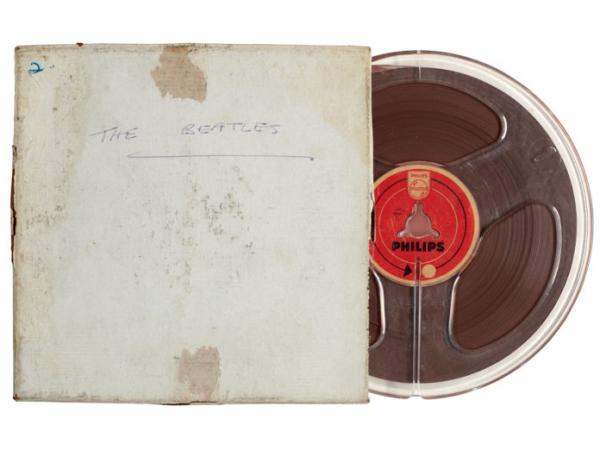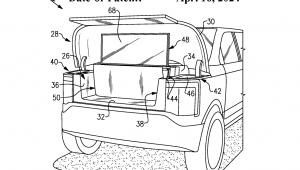Who doesn't like the Beatles? With that said, they got lucky. For every group that gets "discovered" and hits it big, there has got to be another 100 just like them that didn't get the breaks. Just as talented, just not at the right place at the right time. Didn't look as good, not as personable, not rich enough to hold out until the big break came and instead had to get a job that could support them. A lot of what the Beatles became, did so because of hype. Were the songs good, sure.but how many songs could some of the forever lost artists that we will never hear? How much music could they have written and perfected if they had the time instead of holding down regular jobs? My point, do not hold it against the Decca man who made that choice, I am sure he heard plenty of other acts that week. The Beatles may have never been heard from again if a few lucky breaks hadn't come their way.
Analog Tape Time Machine: A Momentous Recording

This particular audition was recorded on January 1, 1962, a few weeks after the band played a now-famous gig at the Cavern. In all, fifteen songs were recorded at the session on two reels of tape, including “Money,” “The Sheik of Araby,” “Memphis Tennessee,” “Like Dreamers Do,” 'Three Cool Cats,” “September in the Rain,” and “Sure to Fall (in Love with You).” McCartney sang lead vocals on some songs, with Lennon and Harrison singing lead on others.
Decca rejected the band in part because the label was concerned about the costs associated with transporting the band between Liverpool and London. Also, Decca's senior A&R guy famously assured manager Brian Epstein that “guitar bands are out.” The label did however sign another band – Brian Poole and the Tremeloes. A successful band to be sure, but not The Beatles. For completeness, there is uncertainty as to whether Decca rejected the band outright, or if the band rejected Decca's offer to sign them if the band themselves bore the cost of pressing the records. Either way, The Beatles were not signed.
And what happened to the audition tapes? The story, of course, is the stuff of legends. Epstein retained a copy of the recordings and played them for the manager of the HMV shop in London. He was impressed and encouraged Epstein to play it for EMI which, conveniently was located on the top floor of the same building. There, he ultimately struck a deal with EMI. The company also allowed him to use their in-house studio to cut acetates from the tapes. Epstein played the acetates to anyone who would listen, including producer George Martin.
Some of these demo recordings resurfaced in the mid 70s when bootlegs appeared, and several tracks appeared on “The Beatles Anthology I.” More recently, one of the original tapes found its way into the spotlight, this time at Sotheby's in London. This particular copy of the tape was the one owned by Brian Epstein, and was part of an online auction of Beatles memorabilia.
Sotheby's was careful to positively verify that this tape was Epstein's copy. This recording of “September in the Rain” is four seconds longer than any of the circulated versions, containing a vocal phrase that at some point subsequently was edited out. Also, the bass note at the end of “Three Cool Cats” is longer than in other versions. The tape, and the seven songs it holds, are legit.
If you're a tape geek like me, you'll want to know that this is a 1/4” open reel tape, recorded at 7-1/2 ips, in mono, spooled onto a 5” Phillips branded reel. Playing time is 15 minutes, 20 seconds. The original box is labeled “The Beatles” and “2” in ballpoint
In case you are wondering, the online bidding closed on December 13, and the tape sold for 62,500 GBP, or about $83,360 USD. I know – you are kicking yourself for not bidding. But Christmas is coming up, and who knows what Santa might be stuffing in your stocking.
And a postscript: As noted, on that New Years Day, 1962, the band recorded 15 songs. As also noted, Sotheby's tape has seven tracks from that recording session and is labeled as the second tape. The whereabouts of Brian Epstein's first tape, with eight additional tracks, is currently unknown. You know those old tapes in the back of your closet? You might want to check them.
- Log in or register to post comments


This is a nice argument against that, at first glance, seemingly borders on the profound, but you have just described every event in history...

A question: is this the original tape? By the price it might be yet one would could imagine if original it might go for even more. The fact it is on a 5" reel might indicate it was an edited dub Brian made some rounds with. That, I guess, gives it some significance too. The more pertinent question is if this is an important tape. Well, it's Brian's personal property and it's The Beatles, so yes, emphatically so. Deeper questions is what does it say about The Beatles. Was greatness of an unusual caliber already present no matter if the fidelity isn't up to the day's best standards audio-wise? Is there any place on the web where this tape is critiqued by qualified parties?
























































